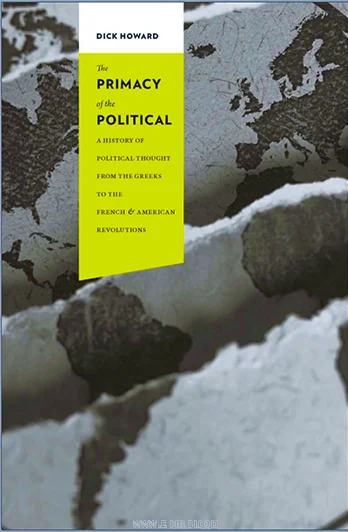The history of political thought begins with the birth of democracy in Greece. Its foundation was the freedom of citizens to participate indecisions that determined their lives. Democractic politics was not easy. Freedom can be felt as a burden, and the responsibility to justify one’s choices sometimes weighs heavily. Individual freedom in a democratic society is not infinite; my freedom exists only insofar as your freedom is recognized. Our choices may conflict.
But the majority may be wrong. Caught up in their own passions, blinded by self-interest, they sacrifice their own judgment to the rush of public opinion. In every age, people of all genders have tended to succumb to the temptation to be anti-political. In fact, for the first two and a half millennia of Western political life, anti-politics was the dominant attitude among the people. The history of true democracy has been a series of all too brief and sometimes tragic episodes. This is because freedom of choice includes the right to err. However, the history of political thought has kept alive the questions that have driven people of all genders to invent more just ways of living together.
About the Book
The conflict between politics and anti-politics has recurred throughout Western history and philosophical thought. From the beginning, Plato’s quest for absolute certainty led him to reject democracy and to take an anti-political position with Aristotle. In an extensive narrative, Dick Howard takes a fresh look at this dilemma and proves that contemporary political issues are not as peculiar as we might think.
Howard begins with the rise and fall of democracy in ancient Greece and republican is min Rome. After the fall of Rome, political thought sought a new medium, and through the contrasting theories of St. Augustine and St. Thomas, the conflict between politics and anti-politics was rekindled. During the Renaissance and the Reformation, the political sphere changed again with the emergence of the modern individual. Never the less, the conflict between politics and anti-politics dominated the period, frustrating even Machiavelli’s attempts to recapture the essence of political thought. Hobbes and Locke, theorists of the social contract, reproduced the conflict that Rousseau had (in vain) tried to overcome.
Adam Smith and the growth of modern economic liberalism, the radicalism of the French Revolution, and the conservative reaction of Edmund Burke then marked the triumph of anti-politicalism, and the American Revolution brought the possibility of political renewal for a moment. Synthesizing these historical examples, viewed through the prism of philosophy, reveals the roots of today’s political climate and the trajectory of the battles to come.

